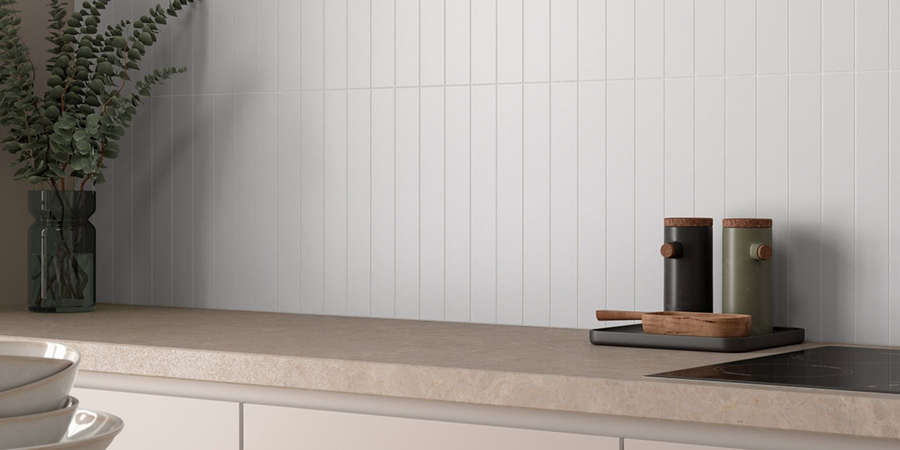
Whether you’re planning on re-tiling your bathroom with a new natural stone tile floor or updating your kitchen walls to add a new metro tile feature to your cooking space, it’s important to consider how some tiling materials are better suited for use in particular spaces than others.
But while natural stone slabs are often a traditional go-to choice for kitchen floors, porcelain tiles are just as suitable for the job, perhaps even more so if such a room experiences high foot traffic.
However, when it comes to porcelain vs ceramic tiles, there are several things you should consider in order to help you understand which material choice might be the right fit for the room in question.
We’re breaking down the core difference between ceramic and porcelain tiles, including their durability, installation needs, and long-term maintenance requirements, all to make your tile choice as simple as possible.
What’s the difference between ceramic and porcelain tiles?
First things first, let’s touch on the difference between ceramic and porcelain tiles – specifically in terms of how they’re made.
While both porcelain and ceramic tiles are man-made products, porcelain uses a combination of clay, sand, and other strengthening materials to produce a tile of unrivalled durability when fired at extreme heat.
Ceramics, on the other hand, are made solely from red, brown, and white clays, being formed into shape before also being fired in a kiln under high temperatures. The results are two tiling materials that are visually similar yet have notable differences.
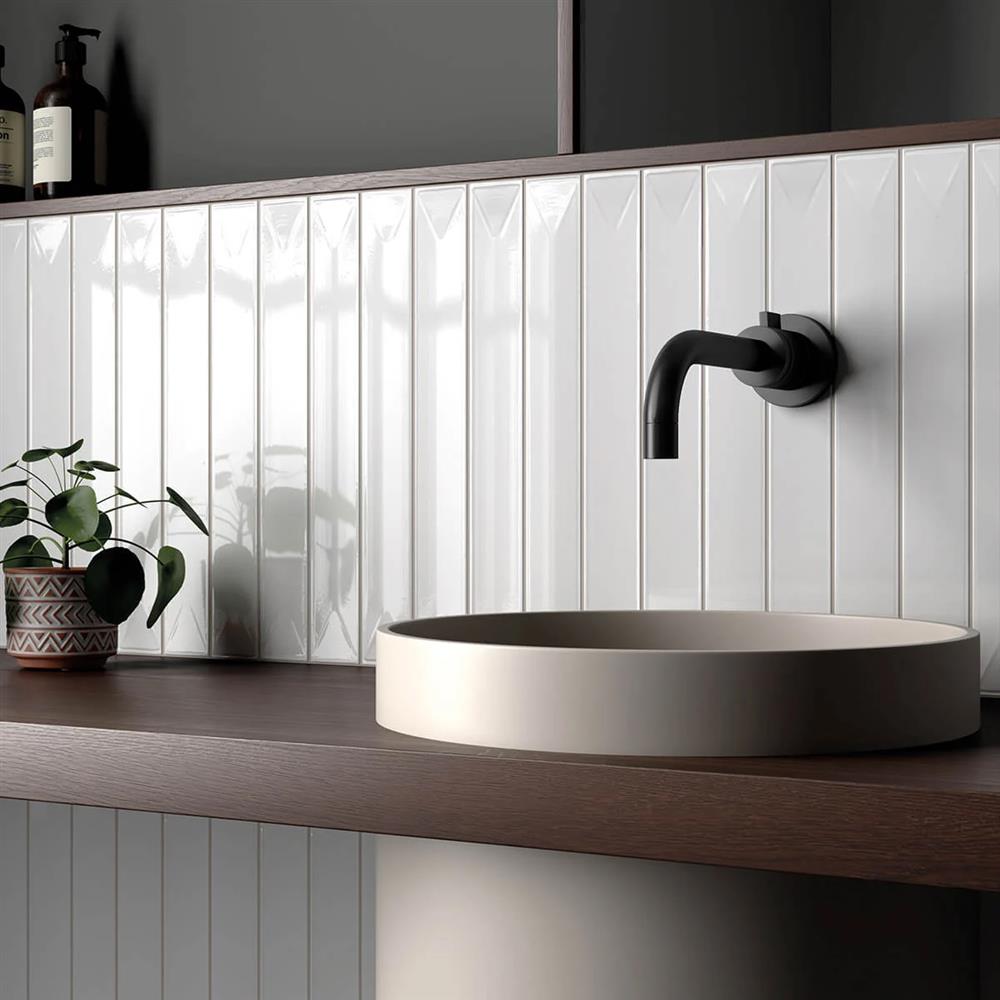
Axis Chalk Gloss Ceramic Tiles
Durability
When it comes to ceramics vs porcelain tiles and their durability, porcelain tiles definitely have the edge over their ceramic counterparts. Simply put, porcelain tiles are incredibly hard-wearing, being almost immune to cracking and taking on even the heaviest foot traffic without issue.
Ceramics, on the other hand, while certainly tough, also have a tendency to fracture and break when put under too much pressure, making them ill-suited as floor tiles or in areas exposed to extreme temperature changes.
However, with all that being said, when it comes to the general durability of ceramic or porcelain tiles, both are far more scratch and water-resistant than many other surface solutions, making them ideal for messy spaces.
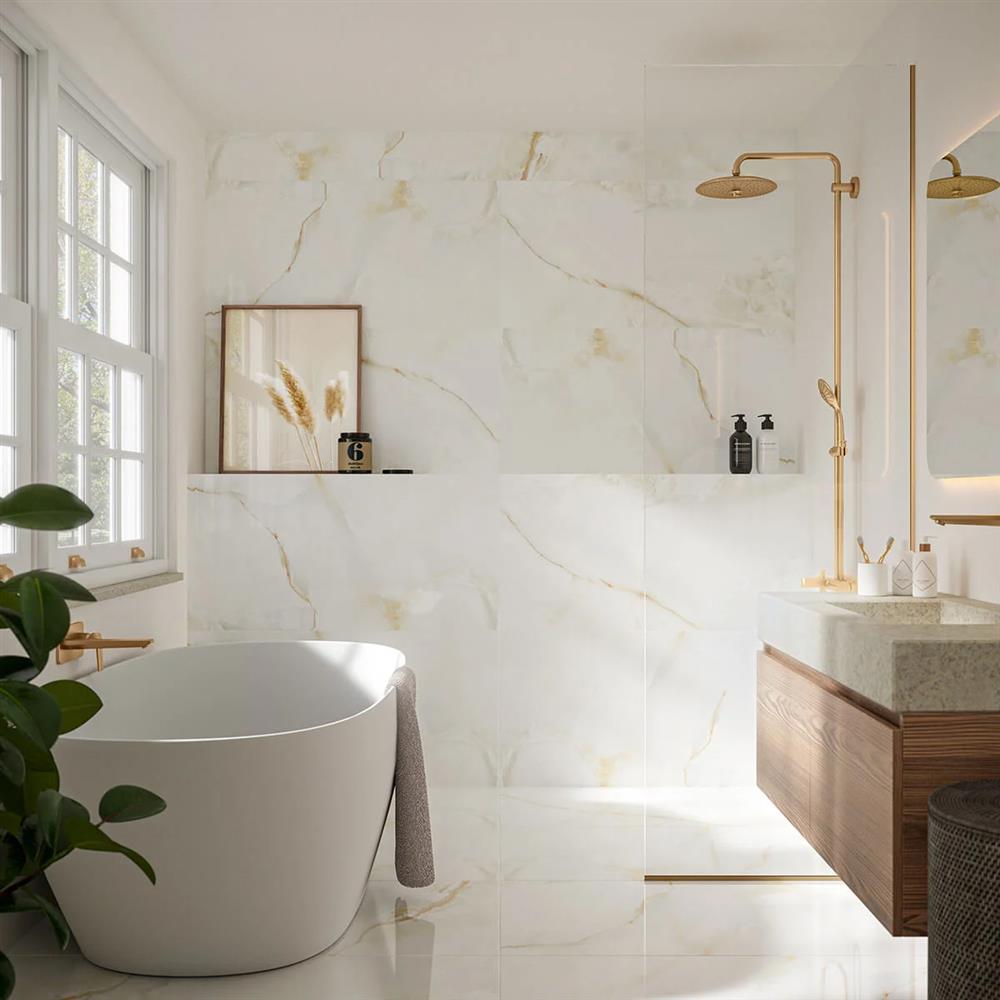
Mimica Onyx Naturale Polished Porcelain
Cost
When comparing the cost between ceramic vs porcelain tiles, the price difference isn’t as significant as many might expect. Ceramic tiles are typically produced using a well-established process and commonly sourced clay, which can make them more economical and affordable, particularly for simple designs.
Porcelain tiles, while slightly more complex to produce due to their higher density and refined clay composition, have become more accessible over the years. Ultimately, both options offer excellent value, and the choice often comes down to style, durability, and suitability for specific areas.
Safety
When selecting porcelain or ceramic tiles for wet environments such as bathrooms or boot rooms, durability and slip resistance are key.
Matte porcelain tiles are the ideal choice here, as they provide outstanding durability alongside anti-slip finishes that are specifically designed for safe, everyday use.
Ceramic tiles, while excellent for walls and lower-traffic areas, lack the robustness required for flooring. Generally speaking, porcelain is considered slightly safer than ceramics, both for its enhanced levels of durability and for the fact that its PEI rating extends between 3-5 on the scale, whereas ceramic sits closer to 3-4.
Porcelain tiles are exceptionally resilient for areas prone to moisture and heavy footfall, offering a safe, stylish, and long-lasting floor solution.
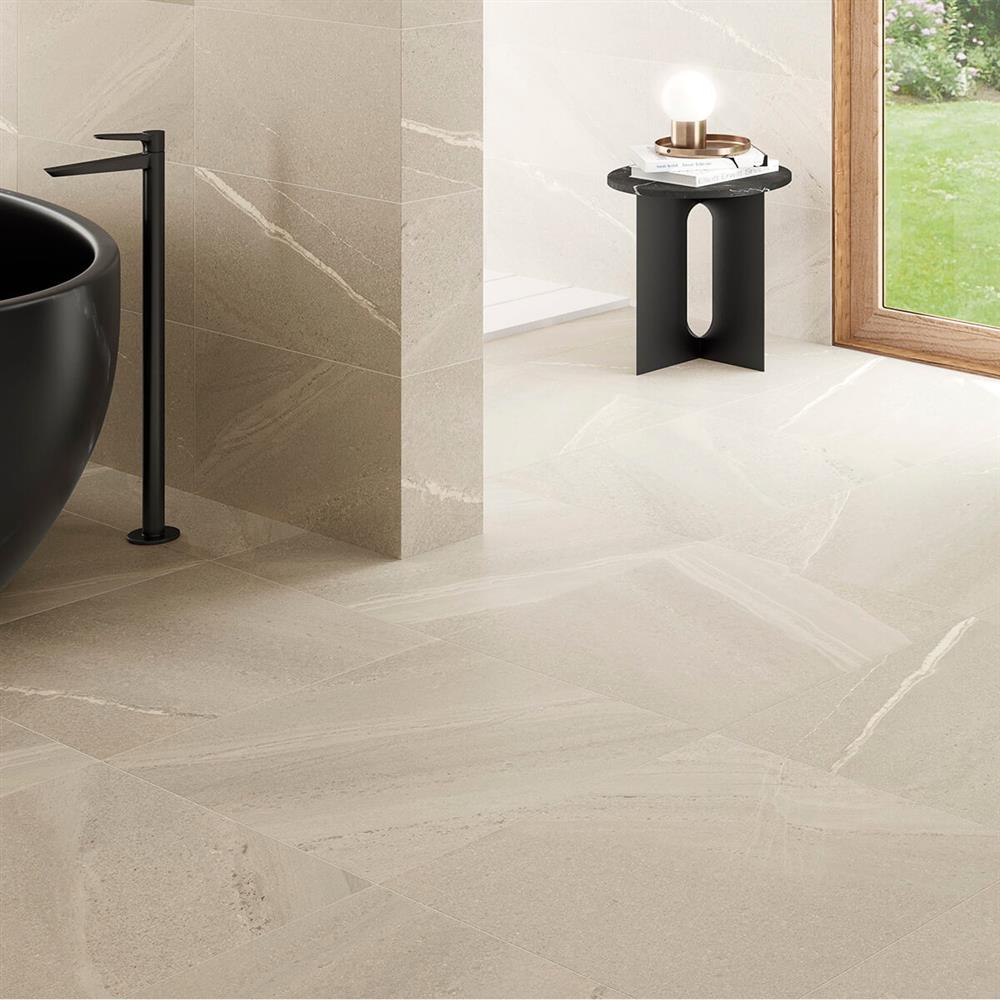
Burlington Ivory Porcelain Tiles
Maintenance
Finally, let’s consider the maintenance requirements of porcelain tiles vs ceramic tiles. Both offer low-maintenance benefits, thanks to their water-resistant properties and manufacturing processes, especially when compared to natural stone or wood flooring.
Porcelain tiles are known to be the ultimate choice here and can be readily wiped clean at a moment’s notice, being unlikely to heavily stain. However, it is worth noting that polished porcelain tiles do require sealing during installation to protect their porous surface from stains.
While porcelain tiles are completely waterproof, ceramics are only water-resistant and will absorb moisture, meaning sealing is recommended within humid areas. Crackle-glazed ceramic tiles, in particular, require sealing and should be cleaned with a specialised cleaner to protect the reactive glaze from harsh chemicals.
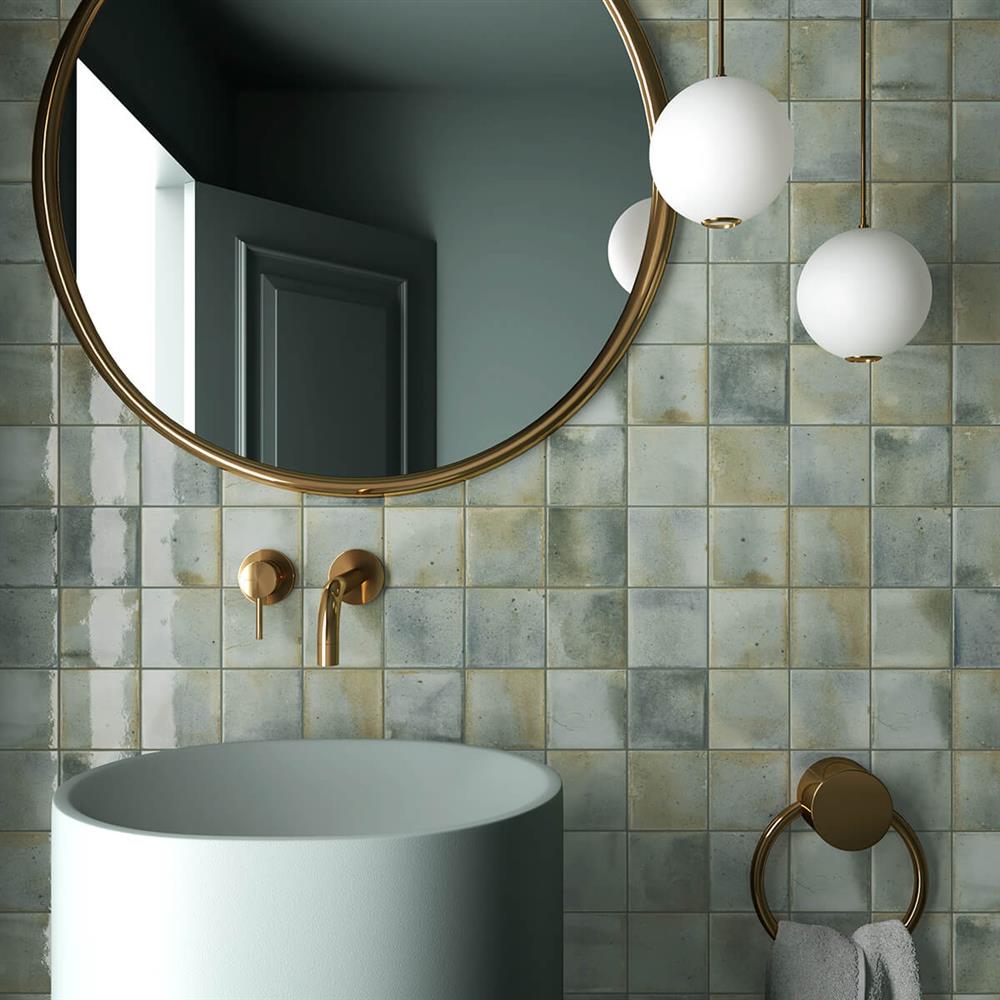
Artisan Green Glossy Ceramic Tiles
Why choose porcelain tiles?
For those considering ceramic or porcelain tiles, porcelain tiles are certainly the better option if you’re looking for a long-lasting surface in a high-traffic area that won’t crack or fade easily.
However, porcelain tiles are considered to be more of an investment compared to other tiling options, especially if you plan on tiling a larger area. But it’s argued that their low-maintenance qualities do offer a cost-effective solution over time.
Why choose ceramic tiles?
Not only do ceramics make great wall tiles, which are good for messy spaces, but their lighter weight means they may be easier to install yourself if need be.
But much like natural stone, ceramic tiles should not be used in moisture-rich spaces unless properly sealed, nor should you be using them for flooring tiling due to the higher likelihood of them cracking.
Buy your new tiles from Stone Superstore
You should now have a much better understanding of the difference between ceramic vs porcelain tiles and which will be best suited for your next tiling project.
And if you’re ready to start that project today, then why not take a look at the full Stone Superstore tile range? With tiles suited for all styles and aesthetics, you’ll have no trouble finding the perfect option to match your vision.
Best of all, if you want to test your tiles before committing to a purchase, then you can order a set of free samples straight to your door. And for more tiling tips, be sure to visit our inspiration and advice hub as well!

